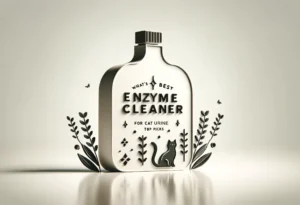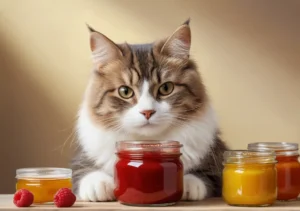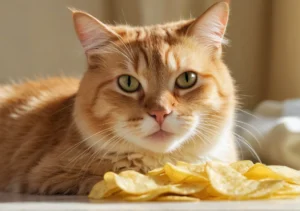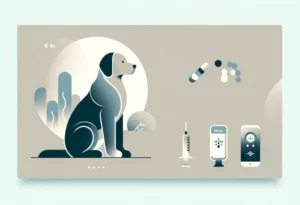Have you ever wondered why your cat seems to have an insatiable craving for milk? Despite the popular image of cats happily lapping up a saucer of milk, many felines are actually lactose intolerant. So why is your cat addicted to milk?
It’s important to note that while many cats may love the taste of milk, it’s not actually good for them.
Understanding the Lactose Intolerance
Let’s get straight to the point – most cats are lactose intolerant. This means that they lack the enzyme lactase, which is necessary to properly digest lactose, the sugar found in milk. When cats consume dairy products like milk, it can lead to a range of digestive issues such as stomach cramps, bloating, and diarrhea. So, if your furry friend seems to have a milk addiction, it might actually be their body’s way of telling you it’s not agreeing with them.
If you notice your cat showing signs of discomfort after indulging in milk, it’s best to avoid giving it to them altogether. Instead, opt for cat-friendly treats that won’t upset their delicate digestive system. Understanding your cat’s lactose intolerance can help you provide them with the proper care they need to stay happy and healthy.
Nutritional Needs of Cats
Now, let’s talk about the nutritional needs of your feline friend. Cats are obligate carnivores, meaning that they require a diet rich in protein derived from animal sources. While milk might seem like a wholesome treat for your cat, it actually doesn’t offer much nutritional value for them. In fact, milk lacks essential nutrients that cats need to thrive, such as taurine and vitamin A.
It’s important to prioritize a balanced diet for your cat that meets their specific nutritional requirements. Skip the milk and opt for high-quality cat food that is formulated to provide everything your cat needs to stay healthy and strong. By understanding the importance of meeting your cat’s specific dietary requirements, you can ensure that they lead a long and happy life.
Keep in mind that every cat is unique , so it’s always a good idea to consult with your veterinarian to determine the best diet for your furry companion. Prioritizing your cat’s nutritional needs is a key aspect of being a responsible pet owner.
For additional tips and information on cat nutrition, check out this article by the American Society for the Prevention of Cruelty to Animals (ASPCA): ASPCA – Cat Nutrition.
Behavioral Patterns
Cats’ attraction to milk can stem from a psychological association with comfort and positive experiences. Kittens naturally nurse from their mother, creating a bond between the act of drinking milk and feeling safe and nurtured. This early experience can lead adult cats to show interest in milk as a form of comfort. Additionally, the taste and texture of milk may trigger positive memories, reinforcing this behavior. It’s important to understand that while cats may enjoy milk, it is not a necessary part of their diet and can lead to digestive issues for many cats.
Safe Alternatives
Instead of giving your cat milk, consider offering safe and healthy treats or snacks that can satisfy their cravings without the potential risks of dairy. Options like cooked, plain meats (such as chicken or turkey), small amounts of fruits (like blueberries or cantaloupe), or commercial cat treats specifically designed for feline consumption can be a great alternative. These treats can provide the same level of enjoyment for your cat without the potential digestive upset that milk can cause. Remember, moderation is key when introducing new treats to your cat’s diet to maintain their overall health and well-being.
Additional Unique Insight: Think of your cat’s treats as a way to strengthen your bond. Spending quality time with your feline friend while offering them treats can create positive associations and enhance your relationship. Cats thrive on routine and positive interactions, so incorporating treats into your interactions can help build trust and companionship with your furry companion.
Breaking the Habit
If your cat is addicted to milk, it’s essential to break this habit gradually. Start by diluting the milk with water to reduce the appeal. Introduce new food options that are more suitable for your cat’s diet. Treats like freeze-dried chicken or salmon can be enticing alternatives to milk. Remember, consistency is key, so be patient during this transition period. Your feline friend will thank you for helping them make healthier choices.
Consult Your Veterinarian
Before making any significant dietary changes for your cat, it’s crucial to consult your veterinarian. They can provide valuable insights into your cat’s nutritional needs and recommend the best course of action. Your vet may also conduct tests to rule out any underlying health issues that could be contributing to your cat’s milk addiction. Working together with your vet will ensure that your cat receives the proper care and guidance for a smooth transition away from milk.
Additional Unique Insight: Consider incorporating a puzzle feeder or interactive toy to stimulate your cat’s mind and keep them occupied. Engaging your cat in playtime can distract them from craving milk and encourage healthier behaviors.
Remember, your cat’s well-being is the top priority, so consulting with a professional is always the best step forward.
Understanding your Cat’s Unique Preferences
Each cat is a one-of-a-kind furball with their own quirks and habits. Just like how Aunt Mabel can’t start her day without a cup of coffee, your cat might have a strong preference for milk. Understanding these unique preferences is key to keeping your feline friend happy and healthy. So if Mittens goes crazy for milk, it’s probably because it’s their personal treat of choice. By catering to your cat’s preferences, you can bond with them on a deeper level and ensure they feel loved and cared for.
Fun Feline Facts
Did you know that not all cats are actually able to digest milk properly? It’s true! While some cats have no issues with consuming milk, others may experience upset stomachs or other digestive problems. This is because many cats lose the ability to properly break down lactose as they grow older. So, if your cat is addicted to milk, it’s important to monitor how they react to it and consult with your vet if needed. Remember, every cat is different, just like how some humans can handle spicy food while others can’t. Keep your furry friend’s unique needs in mind and tailor their diet accordingly.
- Not all cats love milk: Contrary to popular belief, not all cats are crazy about milk. Some felines may not be interested in milk at all, while others may have a strong affinity for it. Just like humans, cats have their own individual tastes and preferences when it comes to food and beverages.
- Moderation is key: While it’s okay to give your cat milk as an occasional treat, it’s important to remember that milk should not make up a significant portion of their diet. Too much milk can lead to health issues such as obesity and digestive upset. Make sure to offer milk in moderation and provide a balanced diet for your furry friend to ensure they stay healthy and happy.
Alex, a passionate animal lover, has experience in training and understanding animal behavior. As a proud pet parent to two dogs and three cats, he founded AnimalReport.net to share insights from animal experts and expand his knowledge of the animal kingdom.




